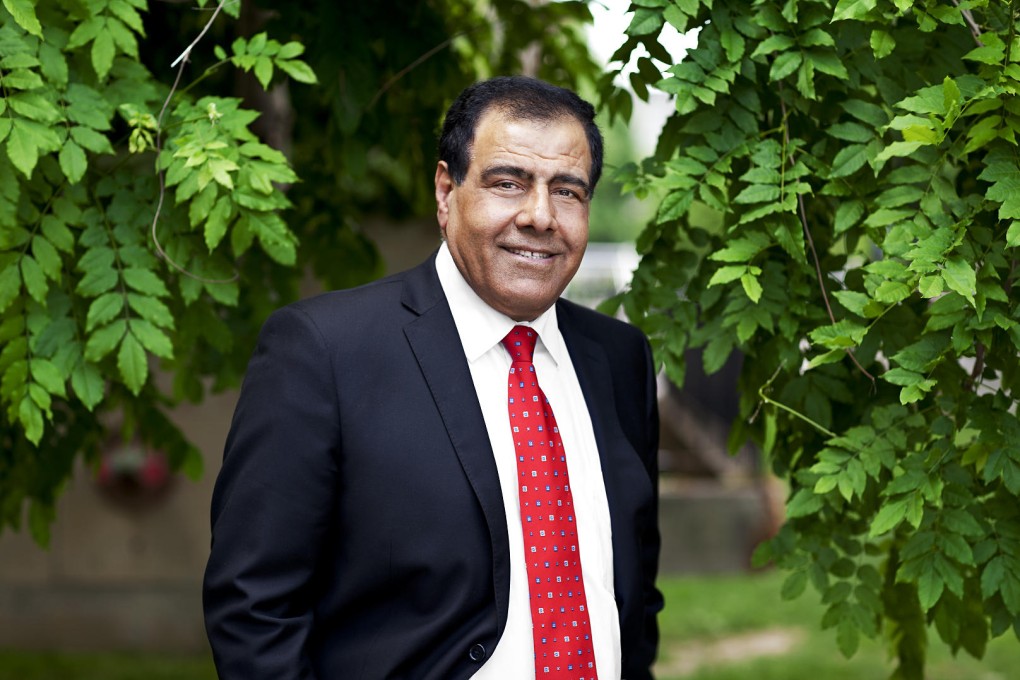My life: Izzeldin Abuelaish
The Palestinian doctor, nominated for the 2010 Nobel Peace Prize, talks to Annemarie Evans about his experience of profound loss

I was born in the Jabalia refugee camp, in Gaza. My parents were deported there in 1948, when the state of Israel came into being. They came from the village of Houg, which wasn't far away. They thought it was only going to be for a week and left everything behind. But it became years, decades and, up until now, it's 65 years of the camp. As farmers they had had their own land (and were) one of the wealthy families - but overnight they became refugees waiting for humanitarian aid. They lost everything, but the biggest challenge was to educate their children.
People ask me whether, as children, we had fun. We would sometimes lock a friend in the outside toilet. But I remember the feeling of hunger, of poverty; waiting for humanitarian aid. What makes me angry - 58 years on - you see the suffering of the refugees is the same. The situation should have improved, but it is getting worse. I loved school and was fortunate to have teachers who became my mentors and taught me that I could achieve. But, as the eldest child, I also had a responsibility for the others. At 3am, my mother would wake me out of a dead sleep and I had to go and sell milk. At home she had goats and pigeons. We would eat the pigeon eggs and have milk from the goats. Any money I earned went to the family. I will never forget where I come from.
As a child I had rheumatic fever. But from the hospital bed I was exposed to the work of the doctors. I dreamed of being a doctor. For a Palestinian, it was the chance to survive and get a better job. I dreamed of the healing and helping but also earning money and the chance for a better life for my family. When I finished high school … I went to medical school in Cairo (Egypt). I later specialised in obstetrics and gynaecology. Now I work as associate professor of global health at the University of Toronto (Canada). I enjoy talking with the students but I miss the field of obstetrics; when you handle a baby and you smile as you hear the cry of a newborn. I started working in Israel during the first intifada (Palestinian unarmed uprising - 1987 to 1991). Israelis were used to seeing Palestinians in unskilled jobs. I was known as the Gaza doctor and it was the happiest time. I'm in contact with my friends (at Soroka University Hospital in Beer Sheva, Israel). In my book I Shall Not Hate, there is a photo of me with Israeli colleagues who worked with me in the in vitro fertilisation unit. There's another where we meet the then Israeli minister of health, Yehoshua Matza, in 2001, who was surprised to encounter a Palestinian doctor in an Israeli hospital.
While I was working in Belgium, in September 2008, I received a call that my wife, Nadia, and the mother of our eight children was very ill (with leukaemia). I immediately tried to find any airlines that could take me back. From Brussels to Tel Aviv is a five-hour flight - but this five hours became two days. I had to go from Belgium to Germany to Turkey to Jordan to come to the bridge [to Israel] - and to cross [it] took 16 hours. All I wanted to do was see my wife, who was dying. But when I arrived she was already unconscious.
On January 16, 2009, I was preparing (in his home in Gaza) for an interview on what effect the Israeli incursion would have on women's health. Despite the shelling and the loss of their mother, there was a sense of togetherness and happiness in the house. (I was) in the dining room when it happened. There was a monstrous explosion. I found (my daughter) Mayar's body on the ground; she'd been decapitated. There was brain matter on the ceiling. A second rocket smashed into the room. My oldest daughter, Bessan, was now dead. So was my daughter Aya and niece, Noor. Daughter Shatha lost the sight in one eye. Mayar was 15 and wanted to become a doctor like me. Bessan was 20. She was supposed to get her BA a few months later. She wanted to do her master's at the London School of Economics. Aya, at 14, wanted to become a journalist. Noor was 17 and planned to be a teacher. These beautiful, lovely girls. I raised them to fight for humanity. I miss them. They are part of me.
I always felt this tragedy should be for good. My son, Mohammed, who was 12, said, "Don't be sad, they are happy that they are with their mother." At that time it was planned that I would be interviewed live by Israeli TV. Shlomi Eldar, my friend from Israeli TV's Channel 10, regularly called me in the late afternoon to ask what had happened that day. I called and told him on live TV and gave a human face to the Palestinians.